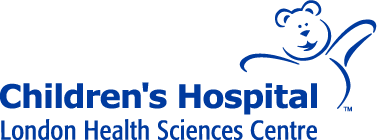Please see below guidelines on how to prepare each age group for a general hospital visit. For more specific information regarding your child’s visit click here.
Infants and Toddlers
Birth – 3 Years
Babies and toddlers have not developed an understanding of the hospital or procedures.
Beyond eight months of age it is normal if your child has difficulty separating from you or the person they trust. Let staff know how you think your child may react if separation may occur.
If this is a planned visit, toddlers benefit from starting to talk about going to the hospital 1-3 days before.
Things you can do to comfort your child are:
- Have a familiar caregiver with them.
- Bring things for comfort like a pacifier, blanket, stuffed animal or favourite toy.
- Rock or hold your child.
- Talk calmly and gently (even babies can pick up on anxiety).
- Distract them with toys, books, singing.
- Use simple explanations such as “the doctor is going to help your ears/belly/leg”.
- Be patient; fussiness, clinginess, and crying are all normal reactions to stressful situations.
- Maintain their regular routine as much as possible.
Preschoolers
3 – 6 Years
To help them understand why a test or procedure is happening, it’s best to give preschoolers time to ask questions and express their feelings beforehand.
For planned visits, preschoolers benefit from simple explanations about why they’re visiting the hospital, about 3-5 days before.
Things you can do to comfort your child are:
- Honest and simple explanations will help your preschool child understand their upcoming hospital visit.
- Ask your child open ended questions like “what do you think is going to happen?”. This is a good way to find out what your child is thinking and gives you a chance to correct misunderstandings.
- Play is an excellent tool for expressions of worries or feelings. Use a doctor’s kit, or dress up to explore what your child understands.
- Encourage your preschooler to choose their favourite comfort items such as a blanket, stuffed animal or toy.
- If your child is having surgery or an MRI, follow this link to contact a Child Life Specialist in that area.
We recommend books to help start conversations about visiting the hospital like Franklin Goes to the Hospital.
School Age
6 – 12 Years
School-age children have a basic understanding of how their body works, typically enjoy learning and can grasp concepts of time. This age group benefits from conversations about their hospital visit about a week in advance. Although more developed in terms of language and complex instructions, school-agers still benefit from “translations” when it comes to medical terminology.
This age group may be comforted by:
- Open and honest conversations about what will happen. Prepare your school-age child by explaining why it is happening, how it will be done and how it may feel.
- Irrational fears may still occur and misconceptions should be corrected.
- Encouraging emotional expression, regardless if they’re scared or angry. It is normal for them to be concerned.
- Offering choices whenever possible, allows your child to maintain a sense of control (for example, “What do you want to bring to the hospital?”, “Do you want mom or dad to stay with you?”, etc.)
- If your child is having surgery or an MRI, follow this link to contact a Child Life Specialist in that area.
- Books about going to the hospital or having surgery are also helpful.
Adolescents
13 Years – 17 Years
Adolescents tend to appreciate knowing what and why things are happening to them, being a part of the discussion and decisions being made whenever possible. This age group is more independent, appreciates privacy, and may be concerned about appearance, maintaining contact with their friends, and having things to prevent boredom.
Teens may be comforted by:
- Open and honest conversations about their care, encourage them to ask questions and speak for themselves whenever possible.
- Reassurance that you are there to support them.
- Encourage them to write down their own questions for health care providers before their upcoming hospital visit.
- Bringing things to do such as colouring, books, personal electronic devices, school work.



